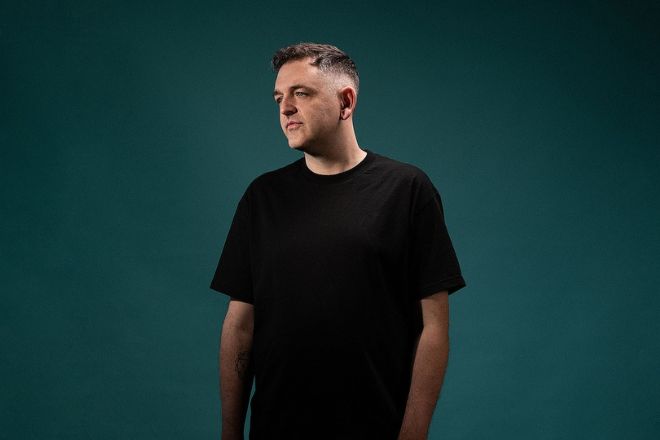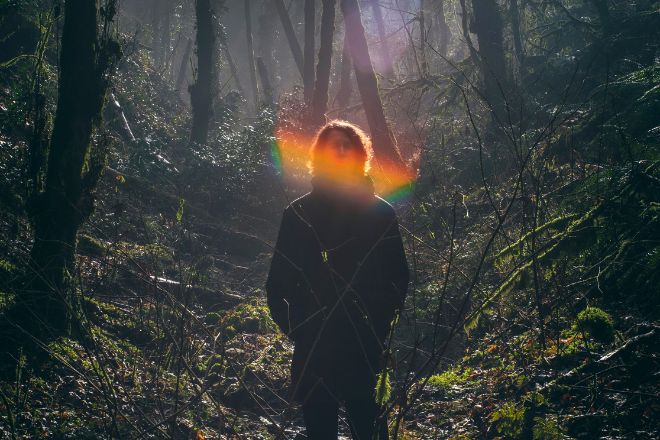FIELD RECORDING, LOCATED SOUND AND ECOACOUSTICS (PART 2) WITH CHRIS WATSON, LEAH BARCLAY, KATHY HINDE, GRANT SMITH AND DAVID TOOP
STARTS 2025-02-23 | SOLD OUT WAITING LIST IS HERE
SIMILAR COURSES:STARTS 2025-02-23 | SOLD OUT WAITING LIST IS HERE

THE BASICS
- 5 videoconference sessions
- Small, intimate group allowing for a tailored and personal workshop
- Active communications within the group between sessions to share ideas, collaborate and keep your project moving
- Individual feedback sessions and tailored support

HIGHLIGHTS
- Work closely with five acclaimed artists, scientists and researchers over a series of five videochat workshops
- Receive assignments to work on where you are, in between sessions
- Explore the sonic ecosystems where you are, and develop creative responses to your findings
- Get individual feedback on your work
- Further support after the workshop, in the form of performance, touring, recording, release and broadcast opportunities

BOOK NOW
The experience of sound is critical to our understanding of the world around us - this workshop will blend the diverse perspectives of five acclaimed artists, scientists and theorists to explore the ideas, practices, benefits and potentials of working with located sound, whether in artistic, environmental or other contexts. It will extend field recording as a practice existing between the aesthetic, the artistic and the scientific. From Chris Watson
Chris Watson kicks the workshop off with a discussion of the practicalities of field record - in Chris's words: "As location sound recordists we have an arsenal of cost effective and cutting edge recording technology available to us for our work. Despite having such a range of choices what I feel is important is how we deploy such equipment successfully, and how to work with our gear in different habitats. Adapting our recording techniques to work appropriately with any chosen subject I think is best described as 'fieldcraft', and that is what we shall address during my on-line conversation."
Chris Watson is one of the world's leading sound recordists specialising in wildlife and natural phenomena. In 1971 he was a founding member of the influential Sheffield-based experimental music group Cabaret Voltaire. His sound recording career began in 1981 when he joined Tyne Tees Television, and since then Chris has gone on to forge a reputation as a pioneer of natural sound recording and production, working closely with David Attenborough on Frozen Planet, The Life of Mammals, The Life of Birds, Life in the Undergrowth, Galapagos and others, winning a BAFTA for his work on The Life Of Birds. His TV credits include Springwatch, Autumnwatch and Big Cat Diary, and in 2012 the Broadcasting Press Guild named Chris "Radio Broadcaster of the Year". In 2013 Chris won the Paul Hamlyn Composers Award, and he recently collaborated with Bjork on the soundtrack to her 2015 MoMA retrospective in New York and by contributing Icelandic recordings to her 'Utopia' album. His sounds and music are regularly featured on BBC television, Radio 4 and World Service productions including 'The Wire' which won him the Broadcasting Press Guild's Broadcaster of The Year Award (2012). As a freelance composer and sound recordist Watson specialises in creating spatial sound installations which feature a strong sense and spirit of place.
In our second session, Leah Barclay presents a workshop entitled "Listening to Ecosystems: The Art and Science of Ecoacoustics". Drawing on over a decade of international research, Leah;s session will highlight how ecoacoustics serves not only as an innovative tool for ecological monitoring and biodiversity conservation but also as a platform for interdisciplinary research, public engagement, and creative practice. Listening to ecosystems can inspire and engage communities in new ways, offering accessible and inclusive pathways for conservation and regeneration in times of ecological crisis. The workshop will feature project examples, practical advice for fieldwork, and opportunities for collaboration on projects unfolding across 2025 within the World Network of UNESCO Biosphere Reserves.
Dr Leah Barclay is an award-winning Australian artist and researcher who specialises in interdisciplinary projects responding to climate change and ecological crises. Working across ecoacoustics and acoustic ecology, her work focuses on innovative approaches to recording and sharing the soundscapes of diverse ecosystems, from the central Amazon Rainforest to the Great Barrier Reef. Barclay collaborates directly with local communities to explore ways we can use creativity, new technologies, and emerging science to reconnect with the environment and inspire ecological empathy. Her ecoacoustic installations have been presented worldwide, from Times Square in New York City to the Eiffel Tower in Paris during COP21.
Next up, in a session entitled "An Ecological Approach to Sound Art", composer, field recordist, multi-disciplinary artist and ecologist Kathy Hinde
Kathy Hinde is an audiovisual artist whose practice embraces open methods and evolving processes. Through installations, performances and site specific experiences, she aims to nurture a deeper and more embodied connection to other species and the earth's systems. Composed of hand-made objects, electronics and a blend of digital and analogue systems, Kathy's work represents a cross between kinetic sound sculptures and newly invented musical instruments. She creates pieces in response to specific locations and frequently works in collaboration with other practitioners and scientists and often actively involves the audience in the creative process.
Kathy has toured work across Europe, USA, Canada, Mexico, Brazil, Russia, China, Sri Lanka, Pakistan, Colombia, Australia and New Zealand. Awards include an Ivor Novello Award for Sound Art 2020, an Honorary Mention at Prix Ars Electronica 2015, a British Composer Award in Sonic Art 2017, an ORAM award 2017, a Scottish Award for New Music 2018 for Collaboration with Maja Ratkje. Kathy was a selected artist for European SHAPE Platform for innovative music and audiovisual art in 2018, is a member of Bristol Experimental Expanded Film (BEEF), and a resident at the Pervasive Media Studio, Bristol.
In session four, Grant Smith
Over four hours we will transmit, listen and exchange. We'll pass the time setting up live streams with laptops and phones, listening back together, discussing recent work with live streaming and radio by the Soundcamp cooperative and others, and thinking through readings, themes and patterns that inform and emerge from the work.
Grant Smith is an artist and writer working on sound, transmission and ecological projects in Loughborough Junction, South London. Grant co-founded and co-directs the Soundcamp cooperative (SC 2013–). Soundcamp are interested in diy infrastructures that can move live sounds between places and situations, and give attention to less heard human and non-human communities. Our work appears as tranmissions, workshops, sound devices and events. As part of the Acoustic Commons network, we coordinate the long-form radio broadcast Reveil (2014–), and a series of soundcamps on Dawn Chorus day each year. Recent work includes: Work Shop #1 – a space at LJ:Works, Loughborough Junction (2023–); Radio With Palestine (2023–), a series of live broadcasts from actions and demonstrations; Spree ~ Channelsea Radio Group, connecting rivers in London and Berlin (2023); l a g – a residency for Sonic Acts' Inner ear(th) programme (2022); and As if radio, An experiment in ecological activist radio at COP26 Glasgow (2021). Since 2019, Grant has collaborated on annual ecoacoustics workshops at CAMP FR with Alice Eldridge, Leah Barclay, Raquel Castro, Chris Watkins and Hildegard Westerkamp. Recent publications include 'Being on Time' with Dawn Scarfe (Performance Research, 28:2, 116-120; 2023) and 'Beingheard: Thinking through Radio With Palestine' with Sasha Baraitser Smith (Openwork, Columbia, forthcoming 2025).
Our final session, led by composer/performer/author David Toop
David Toop is a composer/musician, author and curator working in many fields of sound art and music since the late 1960s. He has recorded Yanomami shamanism in Amazonas, appeared on Top of the Pops with the Flying Lizards and worked with artists ranging from John Zorn, Derek Bailey, Evan Parker, Bob Cobbing and Ivor Cutler to Akio Suzuki, Tania Chen, Camille Norment, Thurston Moore and Ryuichi Sakamoto. Exhibitions he has curated included Sonic Boom at the Hayward Gallery, Playing John Cage at Arnolfini, Bristol, and Blow Up at Flat Time House. He has published eight books, translated into ten languages, including Ocean of Sound, Sinister Resonance, Into the Maelstrom (shortlisted for the Penderyn Music Book Prize) an autobiography, Flutter Echo, and Inflamed Invisible, a collection of essays on art and sound. Since his first album, released on Brian Eno's Obscure label in 1975, he has released twelve solo records, including Screen Ceremonies, Black Chamber, Sound Body and Entities Inertias Faint Beings. He is also the co-creator of Sculpture events with artist Rie Nakajima.
WHERE AND WHEN?
This is an online course, but it involves realtime sessions and contact time with your tutor - it's not a "download these videos and watch them at your leisure" type of thing - it's a real workshop with live lectures, individual tuition, assignments and feedback sessions. We've tried to make this remote session as close as possible to the experience of an onsite workshop at CAMP. The course starts on 23/02/2025 and ends on 06/04/2025. The schedule for sessions is as follows (all times are CET):
- Session 1 - Leah Barclay: 09/03/2025, 09:00 - 11:00 CET
- Session 2 - Kathy Hinde: 11/03/2025, 16:00 - 19:00 CET
- Session 3 - Grant Smith: 19/03/2025, 18:00 - 22:00 CET
- Session 4 - Chris Watson: 25/03/2025, 16:00 - 18:00 CET
- Session 5 - David Toop: 06/04/2025, 16:00 - 19:00 CET
HOW TO BOOK
To book your place on the course, click the button in the green section above. You won't pay anything right now - we'll send you a booking confirmation email with everything you need to know next. Your place is reserved without payment for three days.
You'll find a payment link in the booking confirmation email - follow the link to make a payment (either in full, or the first payment of a 2 month payment plan). In the latter case, a monthly payment plan will be put in place, so your card will be charged 1/2 of the fee today, and 1/2 each month (on the same day) for an additional 1 months. All card payments are handled by Stripe, and are extremely secure. We don't store any card data ourselves - all of this is handled securely off-site by Stripe. If you have a discount or grant code, you will be able to add it when you follow the payment link in your confirmation email.
Once you've made a payment, you'll receive another email containing your receipt, links to resources, contact information and access to our group chat to discuss the workshop with other participants.
IMPORTANT: BY SIGNING UP TO A COURSE (OR A PAYMENT SPLIT), YOU AGREE TO THE TERMS
STUDENT LEVEL: ALL WELCOME
EQUIPMENT REQUIRED: A DEVICE CAPABLE OF ACCESSING ZOOM MEETINGS; FIELD RECORDING EQUIPMENT, HOWEVER BASIC, IS USEFUL.
POST-COURSE SUPPORT: RELEASE OPPORTUNITIES ON OUR IN-HOUSE LABELS, BROADCAST OPPORTUNITIES ON CAMP RADIO, PERFORMANCE AND TOURING OPPORTUNITIES AT FUSE ART SPACE AND ACROSS OUR NETWORK OF PARTNER VENUES.
EQUIPMENT REQUIRED: A DEVICE CAPABLE OF ACCESSING ZOOM MEETINGS; FIELD RECORDING EQUIPMENT, HOWEVER BASIC, IS USEFUL.
POST-COURSE SUPPORT: RELEASE OPPORTUNITIES ON OUR IN-HOUSE LABELS, BROADCAST OPPORTUNITIES ON CAMP RADIO, PERFORMANCE AND TOURING OPPORTUNITIES AT FUSE ART SPACE AND ACROSS OUR NETWORK OF PARTNER VENUES.



